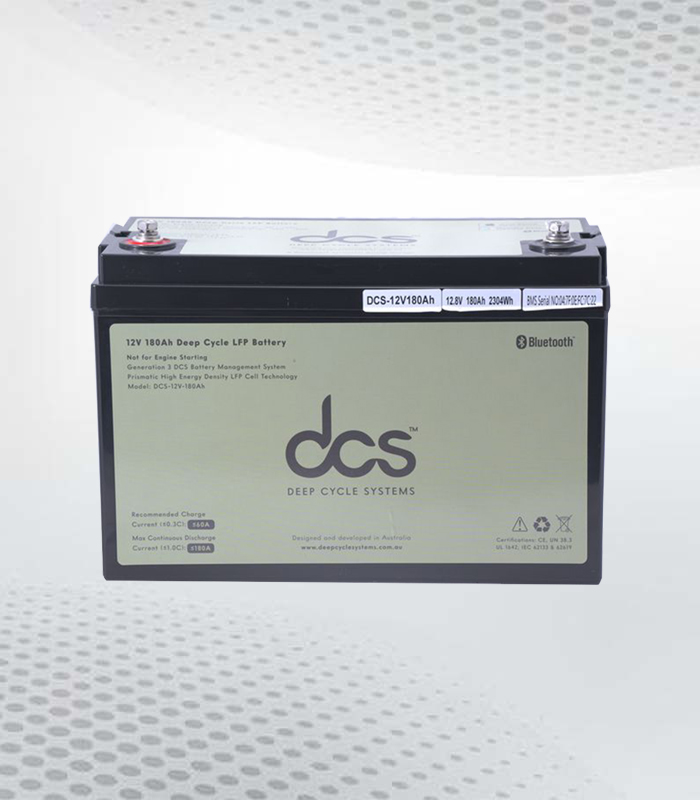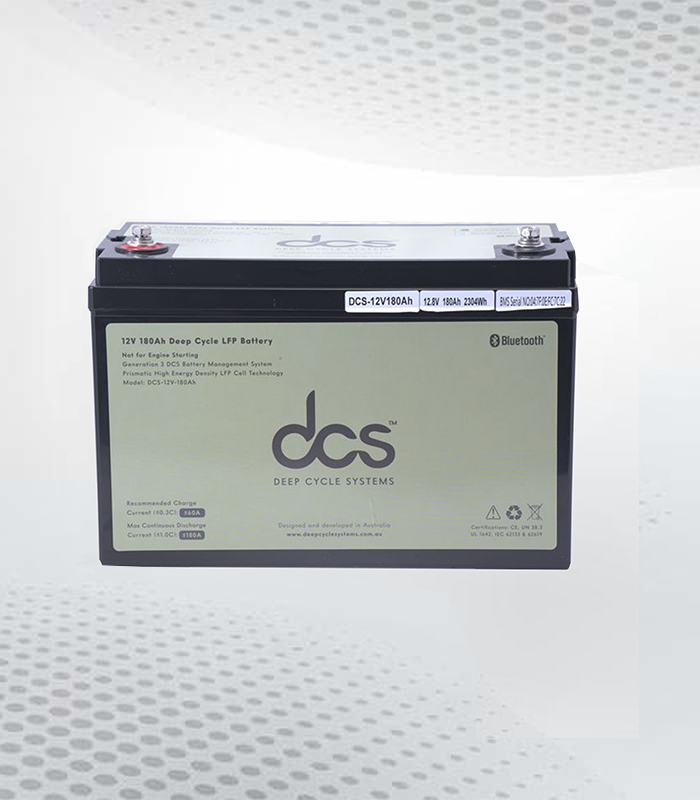A 75Ah lithium battery is a powerful and popular choice for various applications, from electric vehicles to renewable energy systems. In this blog post, we will delve into the dynamics of this type of battery and explore its capabilities, advantages, and limitations. Whether you are considering investing in a lithium battery or simply curious about its Technology, this article will provide you with a comprehensive understanding of this essential power source.
Exploring the Advantages of a Lithium Battery
Lithium batteries stand out for their superior energy density, which translates into a higher capacity for energy storage in a compact form. This attribute is particularly beneficial in applications where space and weight are critical factors. Another notable advantage is their lightweight construction, which contributes to the overall reduction in the weight of devices and vehicles they power, thereby enhancing performance and efficiency.
Additionally, the longevity of lithium batteries is commendable, with a cycle life that significantly exceeds that of traditional battery technologies. This extended lifespan reduces the need for frequent replacements and contributes to cost savings over time. The Lithium Battery encapsulates these benefits, presenting itself as an exemplary choice for many applications where efficiency and reliability are paramount.
 The Technical Specifications of a 75 ah lithium battery
The Technical Specifications of a 75 ah lithium battery
The technical specifications of a 75 Ah Lithium Battery provide a comprehensive overview of its performance and operational parameters. These batteries typically operate within a voltage range suited to their applications, often around 12V to 24V for consumer and commercial uses. A notable aspect of these batteries is their ampere-hour (Ah) rating of 75Ah, which indicates the amount of current the battery can deliver over a specific period, in this case, enough to supply 75 amperes for one hour.
The energy density of a Lithium Battery is significantly higher than that of traditional battery types, allowing for a more compact and efficient storage solution. Weight is another critical specification, with these lithium batteries being remarkably lighter than their lead-acid counterparts, enhancing the mobility and efficiency of the devices they power.
Comparing 75Ah Batteries with Other Battery Types
In the landscape of energy storage solutions, the 75Ah lithium batteries distinguish themselves significantly from traditional counterparts such as lead-acid batteries. These lithium variants boast an enhanced energy density, allowing them to store more power within a more compact form. This characteristic is particularly advantageous in applications where spatial efficiency is paramount.
Moreover, lithium batteries are celebrated for their rapid charging capabilities surpass those of lead-acid batteries, ensuring devices and vehicles are powered with minimal downtime. The cycle life of 75Ah lithium batteries also eclipses lead-acid and other types, presenting a longevity that mitigates the need for frequent replacements.
Despite the higher initial investment for lithium batteries, the extended lifecycle and reduced maintenance requirements render them a more economical option over time. This comparison underscores the evolutionary leap 75Ah lithium batteries represent in energy storage, catering to modern demand for efficiency and sustainability.
The Diverse Applications of Lithium Batteries
The utilisation of 75Ah lithium batteries spans many sectors, evidencing their versatility and robust performance capabilities. In renewable energy, these batteries play a crucial role in solar power systems, storing energy harvested during peak sunlight hours for later use, ensuring a consistent energy supply. The automotive industry has also greatly benefited, particularly with the surge in electric vehicle (EV) production, where the high energy density of 75Ah lithium batteries meets the demand for longer driving ranges and reduced charging times.
Portable electronics, including laptops and smartphones, rely on these batteries’ compact yet powerful nature to enhance portability without compromising usage duration. Additionally, the medical sector utilises them in life-saving equipment, appreciating their reliability and long life span for critical applications. This wide-ranging application across diverse fields underscores the adaptability and efficiency of 75Ah lithium batteries in meeting modern energy demands.
Understanding the Lifespan of a 75Ah Battery
The longevity of a Lithium Battery is influenced by various parameters, including ambient temperature, depth of discharge, and charging practices. Typically, these batteries are known for their durability, lasting several years if maintained correctly. Ensuring a battery does not frequently undergo deep discharges and is not subjected to extreme temperature variations is key to prolonging its lifespan.
Charging habits also play a crucial role; adhering to recommended charging protocols can prevent premature battery capacity degradation. It is observed that a disciplined approach towards monitoring the battery’s state of charge and avoiding pushing the battery to its extremes in terms of discharge and temperature exposure significantly contributes to extending its operational life.
Maintenance Tips for Extending the Life of Your 75 amp Lithium Battery
Maintaining the performance and extending the lifespan of a 75 Amp Lithium Battery relies on a series of considered practices. These maintenance tips are designed to ensure that individuals can maximise the utility and efficiency of their batteries over an extended period. By adhering to the following guidelines, the integrity and functionality of these power sources are preserved, thereby enhancing their reliability and service life.
Regular Monitoring of Charge Levels
It is imperative to monitor the battery’s charge levels closely. Allowing a lithium battery to deplete entirely can adversely affect its long-term capacity. To optimise lifespan, it is advisable to maintain the charge between 20% and 80%.
Optimal Charging Practices
Utilising a charger specifically designed for the battery type and avoiding overcharging is key. Overcharging can lead to heat generation, which may compromise battery health. Employing smart chargers that automatically halt the charging process once full capacity is reached can mitigate this risk.
Temperature Considerations
Lithium batteries are sensitive to extreme temperatures. Storing and operating these batteries within manufacturer-recommended temperature ranges is crucial. Exposure to high temperatures can accelerate degradation, while cold conditions can temporarily reduce performance.
Periodic Cleaning of Terminals
Dust and debris can accumulate on battery terminals, potentially hindering efficient power flow. Regular cleaning with a dry cloth to remove any build-up ensures optimal connectivity and prevents potential operational issues.
Storage Guidelines
For individuals not intending to use the Lithium Battery for extended periods, storing it in a cool, dry place and maintaining a partial charge state (around 50%) is advisable. This precaution prevents the battery from entering a deep discharge state, which could damage its internal chemistry.
Following these maintenance tips significantly prolongs the effective service life of a Lithium Battery, ensuring it delivers reliable performance across its applications.
Safety Features and Considerations for 75Ah Batteries
Handling and utilising 75Ah lithium batteries necessitate adherence to stringent safety protocols to avert potential hazards inherent in their composition and functionality. The explosive nature of the electrolytes, coupled with the batteries’ high energy density, posits a fire risk if mishandled. Manufacturers and users alike must observe rigorous guidelines surrounding these batteries’ charging, storage, and disposal.
Many 75Ah lithium batteries are engineered with integral safety mechanisms, such as overcharge protection circuits and thermal management systems, designed to mitigate the risk of overheating and subsequent combustion. These preventive measures are critical in ensuring the safe operation of lithium batteries across a broad spectrum of applications.
Innovations in lithium battery 75ah Technology
Lithium battery 75Ah Technology is marked by continuous innovation to enhance performance, safety, and environmental sustainability. Researchers and manufacturers are pushing the boundaries by developing advanced materials for cathodes and anodes, which promise to increase the energy density and extend the cycle life of these batteries. Notably, solid-state battery technology is emerging as a pivotal innovation, replacing liquid electrolytes with solid conductors.
This shift significantly reduces the risk of leaks and fires and paves the way for even higher energy densities and faster charging times. Additionally, efforts are being channelled towards improving lithium extraction efficiency and processing methods to mitigate environmental impacts. The industry aims to recover valuable materials from spent batteries by harnessing novel recycling techniques, promoting a circular economy. These advancements in lithium battery Technology reflect a commitment to meeting the evolving demands of energy storage in a manner that aligns with sustainability and safety imperatives.
Choosing the Right Lithium Battery for Your Needs
In selecting an appropriate Lithium Battery, several critical considerations must be considered to ascertain its suitability for intended applications. Paramount among these are voltage and capacity, which directly impact the battery’s compatibility and performance within a given system. Additionally, the physical dimensions and weight of the battery hold significance, especially in scenarios where space constraints or weight considerations dictate the feasibility of deployment.
Lithium chemistries’ landscape presents various options, each with distinct advantages and trade-offs regarding energy density, cycle life, and safety profiles. Lithium-ion and lithium iron phosphate, for instance, differ markedly in these respects, guiding the selection process based on the prioritisation of these attributes. Optimal alignment of these variables with the specific demands of the application ensures not only the efficacy and reliability of the battery but also contributes to maximising its service life and performance.
The Future of 75Ah Batteries in the Energy Sector
The evolution of the energy sector, with a growing emphasis on renewable sources, is set to significantly expand the role of lithium batteries. As solar and wind energy generation increases, efficient and reliable storage solutions become paramount to capture the intermittent energy produced. lithium batteries, with their high energy density and ability to provide power effectively during peak demand, are emerging as a critical component in this new energy landscape.
Their capacity for scalable deployment makes them an attractive option for both small-scale residential systems and larger grid-scale energy storage applications. The versatility of these batteries, coupled with ongoing enhancements in Technology, positions them as a pivotal element in facilitating a seamless transition towards more sustainable energy practices. This shift promises to elevate the utility of batteries within the sector and underscores their importance in achieving a balance between energy availability and environmental stewardship.
Final Thoughts
In summarising, the attributes of 75ah Lithium Battery encapsulate a harmonious blend of capacity, dimensions, and operational efficacy, rendering them an ideal selection across a diverse spectrum of uses. The trajectory of technological advancements and the concerted focus of research in this domain suggest that these batteries are poised to assume a central role in the energisation of the future. The exploration and understanding of the intricacies and considerations associated with lithium batteries equip users with the knowledge to navigate their choice and adeptly use these potent energy storage solutions.
FAQ’s
What determines the lifespan of a 75Ah lithium battery?
Factors such as ambient temperature, depth of discharge, and adherence to recommended charging practices play pivotal roles in the durability of 75ah Lithium Battery. Proper maintenance can significantly enhance their longevity.
Can lithium batteries be recycled?
Yes, these batteries are recyclable. Advances in recycling technology are improving the efficiency of material recovery, contributing to environmental sustainability efforts.
Are there safety concerns associated with 75Ah lithium batteries?
While these batteries possess a high energy density that necessitates careful handling, advancements in safety mechanisms and Technology have substantially mitigated risks. Incorporating features like overcharge protection circuits and thermal management systems ensures safer operations.
How do 75Ah lithium batteries compare to lead-acid batteries?
Lithium batteries offer superior energy density, lighter weight, and longer lifespans than lead-acid batteries. Although the initial cost may be higher, their extended service life and lower maintenance requirements provide cost-effectiveness over time.
What applications are 75Ah lithium batteries most suitable for?
They find extensive use across various sectors, including renewable energy systems, electric vehicles, portable electronics, and medical equipment, showcasing their versatility and efficiency in meeting modern energy needs.
This Article was first Publish on
| Other Good Articles to Read |
| skank blogs |
| unreal blogs |
| tba blogs |
| all city forums |
| dany blogs |
| the music blogs |
| key forums |
| the big blog theory |
| joe blogs |
| blogs 4 me |
| Blogs Emon |
| Related Business Listings |
| Directory Submissions |
| Regional Directory |



